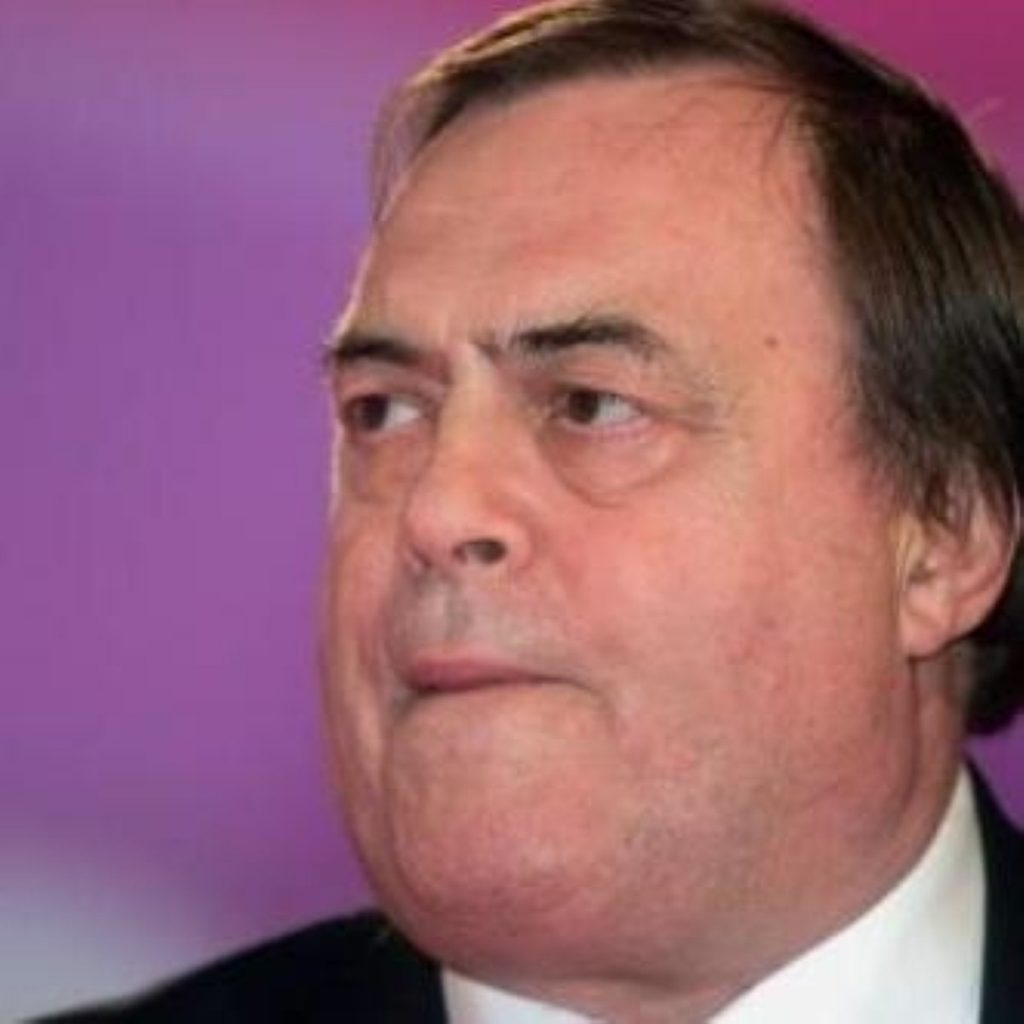Prescott defiant over Dome row
John Prescott has insisted he will not resign over the row about his meetings with an American billionaire bidding to host Britain’s first super-casino.
The deputy prime minister said his discussions with Philip Anschutz, whose company, Anschutz Entertainment Group (AEG), owns the Dome, did not represent any conflict of interest because he did not have any say on who was granted the casino licence.
“I’ll get on with my job, and people must judge me on what I’m doing. I’m not leaving it, I’m getting on with it,” he told Today.
His comments came just hours before parliamentary watchdog Philip Mawer announced a full inquiry into why Mr Prescott did not record a two-night stay with Mr Anschutz at his Colorado ranch last July in the register of MP’s interests


The visit was put on the register yesterday, and this morning the deputy prime minister insisted he had made the decision to do this before the latest row broke out. He said he had believed the stay, made during an official trip to the US, “was the normal thing”.
The news will only add to the pressure on Mr Prescott, who has been fighting off resignation calls since his affair with his diary secretary was revealed earlier this year, and comes after new documents suggest a conflict of interest over the AEG deal.
Minutes from meetings among the deputy prime minister’s officials note that while AEG’s decision to buy the Dome in 2002 was not dependent on gambling deregulation, plans for a casino alongside the building were a “key plank” of the firm’s business strategy.
One report from a meeting in September 2003, released under the Freedom of Information Act and published in The Guardian, records one official noting that AEG “had worked up its business plan and a casino was now a central feature”.
They also reveal officials had asked the culture department, which is responsible for dealing with gambling, to keep them informed on the progress of casino policy.
Speaking today, Mr Prescott insisted his seven meetings with Mr Anschutz between August 2002 and July 2005 did not cover AEG’s bid to host the super-casino, and said he had made sure he was separated from any of his officials’ discussions on the subject.
“These [minutes] reflect a getting together of officials.they didn’t say I was involved, I wasn’t at all. It’s quite normal under all government that you can separate the secretary of state from these decisions, because they are inevitably talking with people,” he said.
He rejected suggestions that the ODPM was pressuring other bidders for the super-casino to stand down in favour of AEG, insisting: “In no way did I express an opinion.I was not involved, I’m very clear about that.”
The debate about whether or not there should be a super-casino at all was decided in parliament as part of the gambling bill, Mr Prescott added, as was the policy of setting up an independent commission to decide which company was given the mandate to run this.
He stressed that the discussions with Mr Anschutz were focused on the regeneration of the area around the Dome in east London, which would create thousands of new homes, jobs and opportunities in the area.
“Here’s a guy who comes along, buys the Dome, and is now converting it into a very successful asset. turning a poisonous bit of land into one of the best bits of regeneration in this country,” he said.
“If a man has to see me if he comes offering that deal then I will see him every three months.”












